Top 10 Startups of the Month: October 2025 Edition
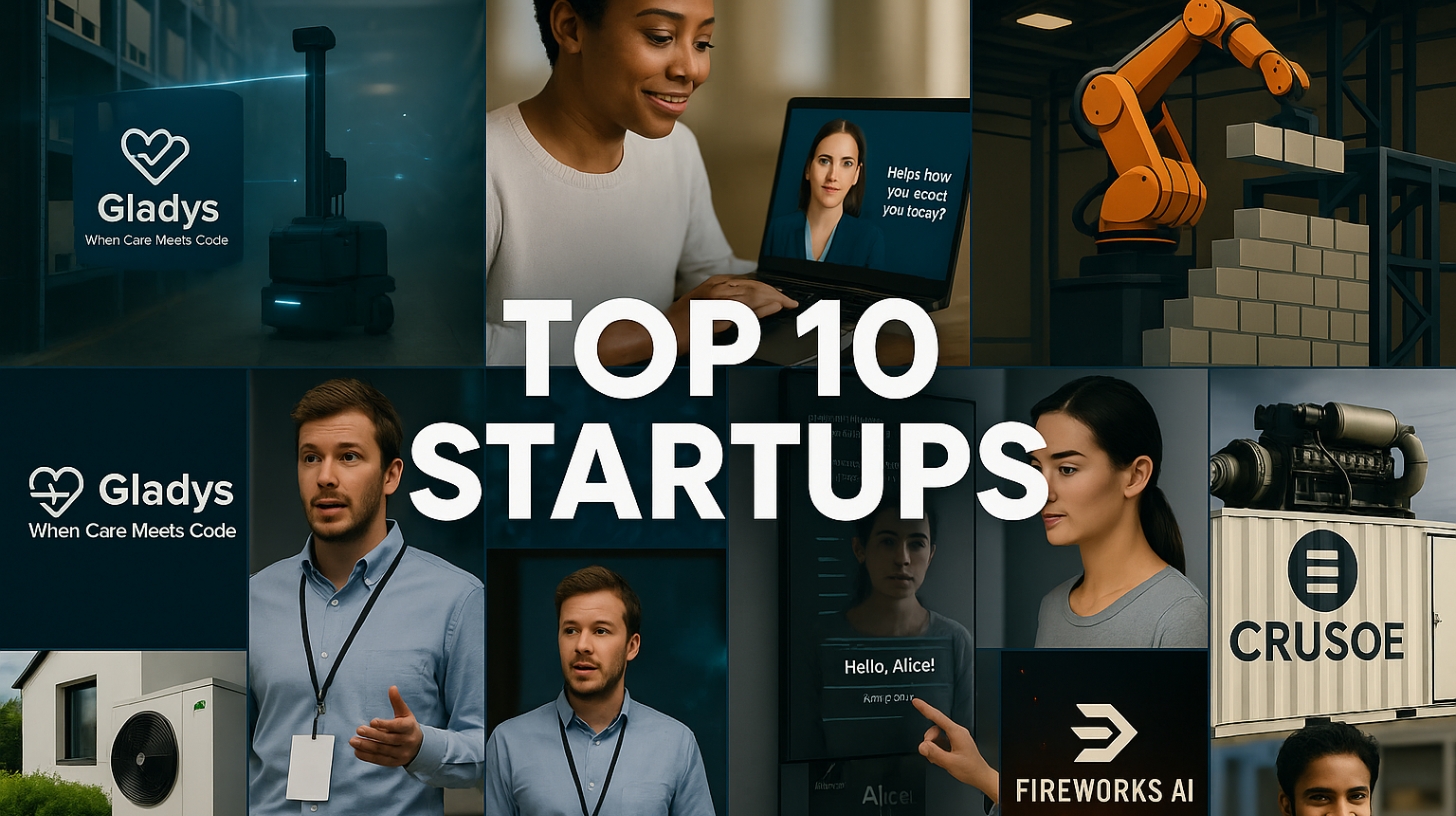
The most promising ventures are redefining industries in the UK and across the globe.
The noise around technology is deafening.
Every week someone promises the next revolution — and yet, beneath the shouting, real progress still moves in silence. It doesn’t trend. It builds.
This October, that quiet machinery has been grinding away — in labs, in warehouses, in backrooms that smell of solder and late coffee.
New companies have emerged not to chase hype, but to repair the foundations everyone else forgot.
Robots that don’t just move, but learn your rhythm.
AI that listens before it speaks.
Power systems that turn waste into light.
And platforms so ordinary they might just hold the world together.
These aren’t headlines; they’re blueprints.
While the world debates who controls the future, these ten teams are out there building it — piece by piece, code by code, valve by valve.
One of them will earn the title of Startup of the Month.
But every single one has already changed the map — of industries, of ideas, and of what “innovation” really means in 2025.
Top 5 UK Startups
1. Dexory — Britain’s Eyes on Every Warehouse
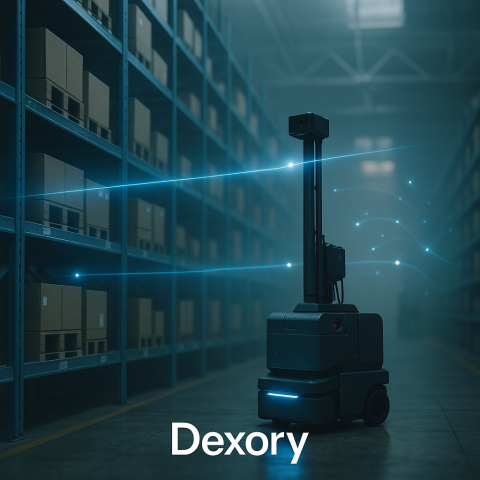
Most revolutions in logistics start with a new spreadsheet or an expensive consultant.
This one started with a robot quietly mapping the aisles of a warehouse in Milton Keynes.
In October, Dexory secured £123 million in funding to scale its autonomous data-capture platform across Europe and the US — a milestone that puts Britain back on the map of industrial AI. But what they build isn’t just a robot with cameras. It’s an entire system that turns warehouses into living, breathing digital twins — models that see everything, measure everything and learn from every movement of a pallet.
For years, the logistics industry has been defined by blind spots. No one really knew what was on each shelf until someone climbed up to check. Dexory’s idea is disarmingly simple: let AI handle the seeing. Their robots scan entire warehouses in minutes, feeding real-time data to supply-chain systems that used to rely on guesswork and paper forms. Suddenly, efficiency isn’t a buzzword — it’s visible, quantifiable, almost beautiful.
When founder Andrei Danescu talks about “data as infrastructure”, you understand why investors are lining up. He’s not selling robots; he’s selling certainty — a commodity warehouses have been short on for decades. And as Britain tries to rebuild its manufacturing and logistics base post-Brexit, that certainty could become a strategic advantage.
It’s the kind of story you don’t see on a billboard, but you feel it in every delivery that arrives on time.
“The future of industry won’t be automated by machines that move faster — but by those that see clearly.”
2. Clove — The AI Advisor for Everyone

Most of us learn about money the hard way — a bill we forgot, a card that didn’t go through, a mistake we promise not to repeat. For years, proper financial advice in Britain belonged to those who could afford a human adviser, or at least a patient accountant. The rest of us had Google, forums and guilt.
Then came Clove — a small London team that decided maybe technology could do something gentler.
In October, they quietly raised around $14 million to build what they call “an intelligent companion for your money.” Not another fintech dashboard, not another bright app with confetti after every payment — but a tool that listens before it calculates.
Clove doesn’t push investments or credit cards. It asks questions. “Are you saving for something, or just trying to survive the month?” “Do you want comfort or growth?” It speaks plainly, sometimes almost too plainly, and the result is startling — advice that sounds human, because it’s built on how people actually live.
Beneath that warmth is a sharp system. It analyses spending patterns, recognises financial stress before you do, and builds quiet suggestions that fit your rhythm. The aim isn’t to make you rich; it’s to make you steady.
One café owner I spoke to said it best: “It’s like talking to a friend who doesn’t judge, but keeps the receipts.”
And maybe that’s the future of finance — not grand promises, just a little peace each time the rent clears.
“The best financial technology doesn’t sell you wealth. It teaches you calm.”
3. Launchpad — Building Robots That Build

Some inventions arrive with fireworks. Others roll out of an Edinburgh workshop at three in the morning, covered in dust and questions. Launchpad is that kind — a team of engineers who build robots not to impress, but to work.
In mid-October, they closed an £8 million Series A round to expand their modular assembly robots — small, adaptable units designed for the dullest, hardest corners of industry. You won’t see them dancing at tech fairs. You’ll see them bolting frames, packing components, or welding in the dark where humans don’t last long.
What makes Launchpad interesting isn’t the robot itself; it’s the philosophy behind it. They aren’t trying to replace the factory worker — they’re trying to give that worker something stronger than a spanner: endurance. Each robot can learn a routine from a person and then repeat it endlessly, letting humans move up the ladder instead of burning out at the bottom.
In an age obsessed with software and screens, Launchpad is unapologetically physical. They talk about torque, not tokens; precision, not hype. The founder, Jamie Curran, once said, half-laughing, “I just want a machine that shows up on time and doesn’t argue.”
That line stuck with me.
It’s the kind of Scottish pragmatism Britain’s industrial future depends on — solid metal, stubborn optimism, and no press-release glitter.
“Not every revolution needs a glossy finish. Some just need a wrench and a plan.”
4. Gladys — When Care Meets Code
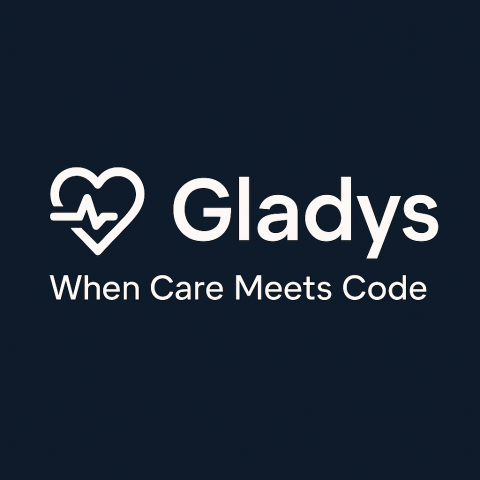
Every few years someone promises to “reinvent healthcare.” Usually, that means an app, a wearable, a dashboard full of cheerful graphs. Gladys isn’t any of that. It’s smaller, quieter — and somehow more human.
The idea was born in Cambridge, where the founders watched a problem that rarely makes headlines: people caring for people. Not doctors or nurses, but family members, neighbours, volunteers — the invisible workforce that holds Britain’s ageing society together. In October, Gladys raised £1.5 million to give those carers a hand that never sleeps.
What they built isn’t a robot nurse or a voice assistant that chirps about medication. It’s an AI companion that listens, records, reminds — gently. It tracks routines, notices stress, and sends subtle nudges before exhaustion hits. One carer told me she thinks of it less as software and more as “a notebook that understands what the day costs.”
The team talks about “compassionate data.” It sounds sentimental until you see it in action. Gladys doesn’t aim to automate empathy — it tries to protect it. By handling the small logistics of care, it leaves humans with time for the parts that truly matter: a conversation, a smile, a rest.
No venture capital giant will plaster this story across billboards, and that’s fine. Some technologies don’t need to shout to feel revolutionary.
“The most powerful kind of intelligence is the one that remembers you’re tired.”
5. HotGreen Solutions — Heat Without the Guilt

Walk through any British industrial estate on a cold morning and you’ll see it — steam rising from vents, gas boilers roaring, heat spilling into the air like nobody’s paying for it. For decades, we weren’t. That’s the quiet crisis HotGreen Solutions was born to fix.
In late October, the Oxford-based startup closed a £1.2 million pre-seed round to scale its low-emission thermal systems for factories, offices and commercial kitchens. The idea sounds humble: capture wasted heat, store it, and reuse it. Yet behind that modest pitch lies a blunt truth — heating is Britain’s dirtiest habit. If you can clean that up, you don’t just cut emissions; you change how the country breathes.
HotGreen’s approach isn’t about grand climate pledges or abstract ESG goals. It’s pipes, valves and maths. The company’s modular units retrofit into existing systems and turn industrial heat into a circular resource. For small businesses battered by energy prices, that means lower bills and fewer sleepless nights waiting for the next gas spike.
One founder told me, “We don’t build miracles, we fix leaks.”
And somehow, that line captures the whole mood of Britain’s new generation of climate-tech startups — pragmatic, unglamorous, quietly stubborn. They’re not trying to save the planet with slogans. They’re trying to stop wasting what we already have.
“Real sustainability doesn’t shout about the future. It just stops throwing it away.”
Top 5 Global Startups
6. Reflection AI — The Mirror That Codes Back

It didn’t start with a manifesto or a flashy demo.
Just a few engineers in New York, late nights, takeaway boxes, and one uneasy question: what if code could teach itself how to stop making the same mistakes we do?
That question turned into Reflection AI, and by October it had pulled in roughly $2 billion from investors who normally don’t gamble on ideas this wild. NVIDIA is in. So are a few people who quietly helped build the early internet. They see something here — not a product, more like a shift.
Reflection doesn’t spit out code like a machine gun. It listens. It argues. You tell it what you’re trying to build, and it sketches a framework, checks the dependencies, sometimes even tells you you’re being daft. Then it waits. The waiting is what makes it strange — it behaves less like a bot and more like a colleague who likes to think out loud.
One developer told me, “It’s unnerving. It reads your intentions better than your manager does.”
Another said it felt like looking in a mirror that writes back.
It’s not sleek or magical yet. It still crashes, forgets context, apologises. But there’s a sense that something’s shifting under the surface — that maybe progress in AI won’t come from speed or scale, but from a kind of humility built into the code itself.
“Sometimes evolution isn’t about going faster. It’s about learning when to pause.”
7. Polymarket — Betting on the Truth

Most people think of prediction markets as a curious hobby — half economics, half pub argument. Polymarket decided to turn that chaos into data. And in October, the New York-based startup raised close to $2 billion in a deal that pulled in ICE, the parent company of the New York Stock Exchange. That’s no small endorsement for what used to be dismissed as a crypto sideshow.
The premise is disarmingly simple: people bet on real-world outcomes — elections, inflation, even weather patterns — and the odds themselves become a kind of crowd-sourced truth meter. It’s messy, imperfect, occasionally reckless, but the collective accuracy has started to embarrass the experts. When thousands of ordinary users have money riding on the answer, bias fades fast.
Polymarket’s platform runs on blockchain rails, but that’s not really the point anymore. The point is that markets built for speculation are quietly evolving into instruments for reality testing. Hedge funds already study its trends. Journalists peek at its graphs before deadlines. Even policymakers, off the record, admit they’d rather watch the odds than another poll.
It’s a strange moment when gambling starts to look like governance — and perhaps a revealing one.
Because beneath all the volatility and noise lies a bigger idea: that truth, too, can be priced, tracked, and maybe even protected.
“In a world drowning in opinions, sometimes the market is the only one telling the truth.”
8. Crusoe — The Power Behind the Machines

Before the AI boom, no one cared where all that electricity came from.
Now it keeps founders awake at night. Data centres are the new oil rigs — vast, hungry, and politically charged. Crusoe, based in Denver, saw the problem early and quietly built a business around solving it.
In October, the company announced a $1.4 billion funding round to expand its network of carbon-neutral data centres, designed specifically for AI workloads. Their idea sounds almost rebellious: take wasted natural gas — the kind oil fields usually burn off — and use it to power high-performance computing clusters. Instead of flaring pollution into the sky, they turn it into training energy for large models.
It’s not glamorous work. Crusoe doesn’t make apps or headlines; it builds the invisible infrastructure behind the machines that make the headlines. You’ll never see a viral demo of what they do, but every time someone fine-tunes a neural network a little faster or cheaper, there’s a chance Crusoe had something to do with it.
The founders talk less about climate virtue and more about engineering discipline — converting chaos into order, waste into watts. That combination of hard tech and quiet ethics has made them one of the few companies everyone in the industry seems to respect.
Maybe the real story of AI isn’t the models that talk, but the engines that let them think.
And that’s where Crusoe lives — in the noise behind the noise.
“The future of intelligence runs on clean power — and someone has to build the plugs.”
9. Fireworks AI — Selling the Spark
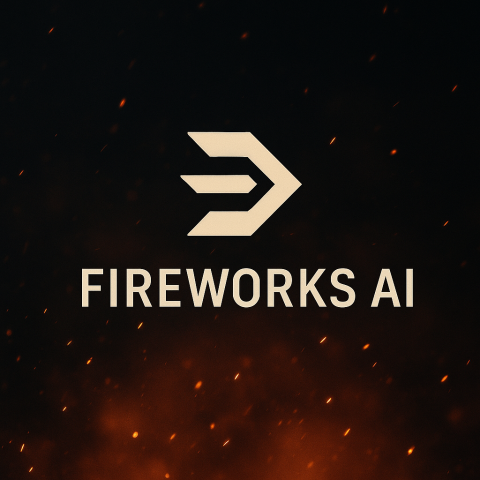
The AI gold rush has a strange side effect: everyone’s digging, but no one’s making money from the digging itself. Fireworks AI, a California-based startup founded by ex-Meta engineers, decided to fix that.
In the last week of October, they raised $254 million at a $4 billion valuation — not for another chatbot or novelty app, but for the most unglamorous layer of all: inference. The part where trained models actually run, answer, translate, generate — the bit that quietly burns through cash and energy every second. Fireworks wants to make that layer efficient, fast, and, for once, profitable.
They call it “selling the spark.” It’s the difference between building a rocket and keeping it fuelled. Their platform lets companies run AI models on any hardware, in any cloud, without drowning in infrastructure costs. It’s not flashy; it’s plumbing. But the right kind of plumbing is what keeps cities — and revolutions — alive.
One investor described them to me as “the AWS of open models.” Maybe.
Or maybe they’re something subtler: the group that turns AI from spectacle into service, from headlines into habit.
There’s a confidence to how they talk — measured, dry, deliberate — the tone of people who’ve stopped caring about hype because they know they’re already indispensable.
“In every boom, the real winners aren’t the miners. They’re the ones selling the fire.”
10. Glīd — The Little Company That Moves the World
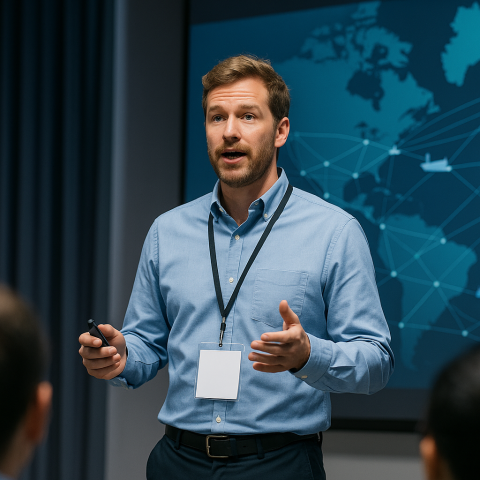
Every tech conference ends with the same noise — slides, slogans, a promise to “redefine” something. Then, once in a while, a small team walks on stage with no buzzwords at all and still wins. That was Glīd, the surprise victor of TechCrunch Disrupt Battlefield 2025 in late October.
Their product? Logistics software. Nothing sexy. No neon robots, no grand speeches about the singularity. Just a platform that helps shipping companies stop losing containers and start finding profits. In a year obsessed with AI drama, Glīd won because it built something the world actually needs — visibility.
The founders are ex–freight managers who got tired of watching millions evaporate in delays and paperwork. They built a system that links ports, hauliers and customs data into one living map — a quiet brain for global trade. The demo didn’t sparkle. It just worked. And maybe that’s what the judges were hungry for: competence, not magic.
Since the win, Glīd has been fielding calls from logistics firms, insurers, even defence contractors. Everyone wants in on reliability. The startup world keeps chasing disruption, but Glīd offers something rarer — restoration, the return of things working as they should.
It’s not a headline-grabber, but it’s the kind of company economies are built on — the small, stubborn kind that makes big systems behave.
“Not all revolutions roar. Some arrive with a clipboard and a sense of order.”
Cast Your Vote
Which of these startups deserves the October spotlight? We’re inviting readers to have their say — not on the loudest pitch or the biggest headline, but on the team you’d actually bet on to change the world.
Vote here - https://www.facebook.com/prime.economist
Editor’s Pick
Our editorial choice for October goes to Glīd — the logistics startup that reminded everyone what innovation is supposed to feel like: useful.
While others chased headlines and valuations, Glīd built something the global economy actually runs on — clarity. A simple system that connects ports, hauliers, and customs data into one live network. No hype, no drama. Just competence, finally rewarded.
In a month filled with breakthroughs in AI and robotics, it’s almost poetic that the quietest team in the room took the loudest prize.
Because progress isn’t always a roar. Sometimes it’s a spreadsheet that works, a shipment that arrives, a world that runs just a little smoother than it did yesterday.
“The future won’t be defined by the loudest ideas — but by the ones that simply refuse to fail.”